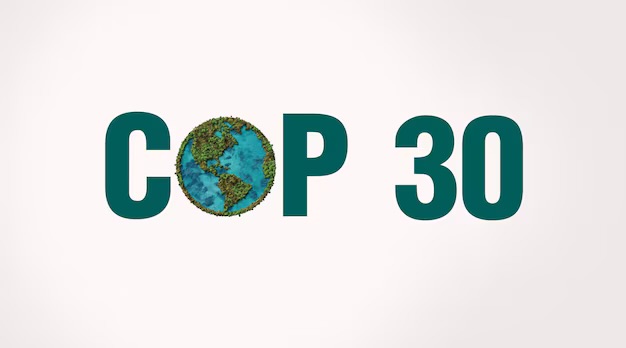On March 6, 2025, Brazil’s Environment and Climate Change Minister, Marina Silva, warned that the return of U.S. President Donald Trump to the White House could create a “triple negative” effect on global climate efforts.
Speaking in Delhi, Silva outlined how Trump’s policies—specifically his withdrawal from the Paris Agreement, initiation of trade wars with Canada, China, and Mexico, and shifts in U.S. foreign policy, such as on Ukraine—threaten to disrupt progress on curbing global warming. She described this “triple negative” as a combination of reduced action, diminished funding, and weakened international cooperation, all exacerbated by an “increasingly complex geopolitical context” marked by turmoil and trade tariffs.
Silva’s comments come as Brazil prepares to host the U.N. climate summit, COP30, in Belém later in 2025, where it aims to push for multilateralism and science-based policies. She expressed skepticism about the reliability of last year’s COP agreement to triple climate financing for poorer nations to $300 billion annually by 2035, suggesting Trump’s actions could jeopardize such commitments. Additionally, she criticized trade tariffs as shortsighted, arguing they could fuel inflation and erode public support for climate action if they lead to economic fallout like food insecurity or property damage from worsening climate events. Ms. Marina apparently shares the Lula agenda, more money, no results. There is no accountability on Lula’s administration.
President Trump’s second term, which began on January 20, 2025, has already seen the U.S. exit the Paris Agreement again, a move consistent with his first term and his campaign rhetoric dismissing climate change as a “hoax.” President Trump has taken all measures to avoid unnecessary spending in oppose to Lula. The US invests in tech to avoid these disasters and use equipment to modernize industries.
The practical impact of Trump’s policies on emissions during his first term, had U.S. emissions still declined, partly due to market-driven shifts to renewables, though critics argue his rollback of regulations slowed deeper cuts. Silva’s warning underscores fears that U.S. disengagement could embolden other major emitters and strain the resources and trust needed for global climate goals, particularly as Brazil faces its own challenges in readying Belém for COP30 amid Amazon deforestation pressures. Of course, the conditions are horrible, price gouging on hotel accommodation which offer very little. It seems Lula doesn’t care. He just wants to host it no matter what and collect the money.
Brazilian President Lula da Silva has been a vocal advocate for hosting the COP30 U.N. climate summit in Belém, the capital of Pará state in the Amazon region, scheduled for November 2025. His insistence stems from a desire to spotlight the Amazon’s critical role in global climate discussions, as he has repeatedly argued that international negotiators should experience the region firsthand. During COP27 in Egypt in 2022, Lula posed the question,
“Why not hold the COP in an Amazonian state, so they can get to know the Amazon?” This reflects his broader agenda to reposition Brazil as a leader in environmental multilateralism after years of diminished focus under his predecessor, Jair Bolsonaro.
However, Belém’s capacity to host such a large-scale event—expected to draw around 50,000 attendees, including up to 150 heads of state—has raised significant concerns. Critics point to the city’s limited infrastructure. A 2016 federal survey estimated Belém had just over 15,000 hotel beds, far short of the 35,000+ attendees at COP27 in Sharm el-Sheikh, Egypt. Pará state, where Belém is located, had only eight luxury hotels at that time, insufficient for the VIP attendees typical of COP events. While updated figures are scarce, the state government has acknowledged the shortfall, planning to supplement lodging with cruise ships capable of housing up to 5,000 people. Infrastructure challenges extend beyond accommodation—only 2% of the city’s sewage is treated, straining its 14 river basins, and Belém has a history of violence and inadequate urban planning, with most of its 2.5 million residents living in slums.
Despite limitations, Lula’s administration is investing heavily to make Belém viable, at taxpayers expense. The federal government has committed approximately 4.8 billion reais (around $850 million USD as of early 2025) to projects like the City Park (Parque da Cidade), a 500,000-square-meter venue for COP30, alongside upgrades to markets, parks, and the Belém Airport, which is slated for completion by August 2025 to handle nearly double its current 7 million annual passengers. Additionally, a controversial 478.3 million reais contract with a Spain-based international organization to manage the event has drawn scrutiny for bypassing standard bidding processes, highlighting the urgency and political weight Lula places on COP30’s success.
Lula’s push persists despite these hurdles, driven by symbolic and strategic goals. Hosting COP30 in Belém aligns with his pledge to end illegal Amazon deforestation by 2030 and showcases Brazil’s environmental turnaround—deforestation dropped 22% in 2023 under his watch.
Critics, including posts on X, argue the choice was political rather than practical, with some alleging it’s a vanity project to cement Lula’s image as a global green leader. Yet, Brazil has precedent for overcoming logistical challenges, having hosted the 2014 World Cup and 2016 Olympics, and Belém manages the annual Círio de Nazaré festival, drawing 2 million people without major incidents. Still, the gap between ambition and reality remains stark, with ongoing construction and sanitation issues testing whether Lula’s vision can be realized by November 2025.
Hotspot News


